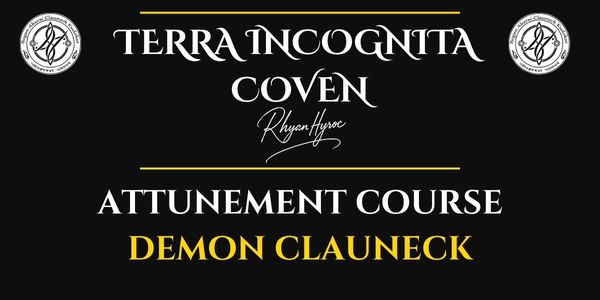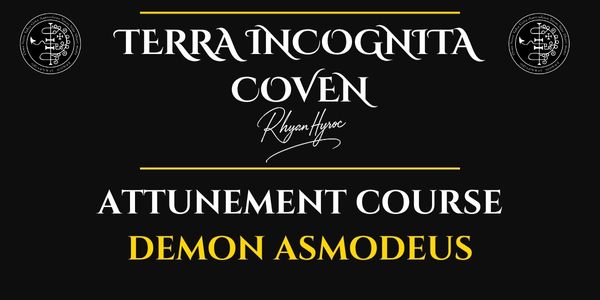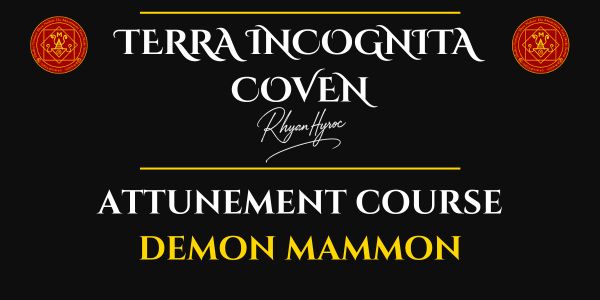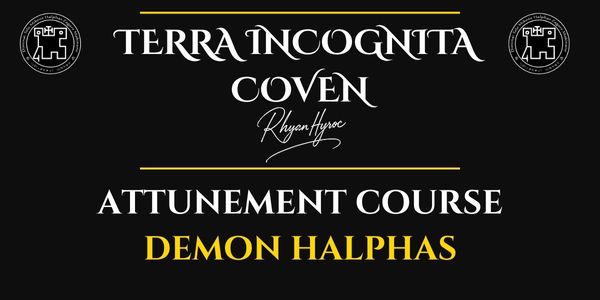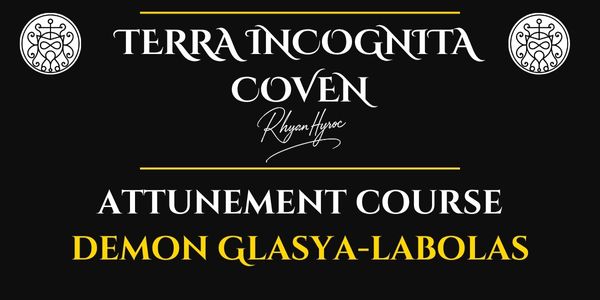Welcome to our Support Portal. Search for answers using the search box below,
or create a support ticket if you cannot find your answer.
Who is Demon Amdusias

Amdusias: Duke of Thunder and Dissonant Harmony in the Ars Goetia
By Rhyan Hyroc, Leading Scholar of the Lemegeton and Ceremonial Demonology
- Amdusias: Duke of Thunder and Dissonant Harmony in the Ars Goetia
- Identity and Rank in the Ars Goetia
- Original Description from the Ars Goetia
- Modern Translation and Interpretation
- Appearance and Manifestation
- Historical Context and Comparative Analysis
- Symbolism and Functions
- Role in Ceremonial Magic
- Observations and Closing Analysis
- References
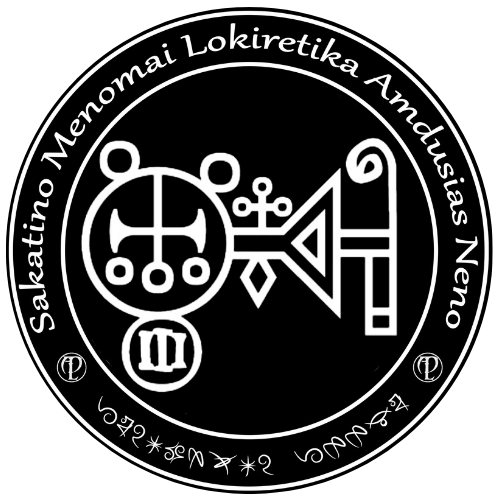
Identity and Rank in the Ars Goetia
Amdusias, sometimes rendered as Amdukias or Ambduscias, is the sixty-seventh spirit named in the Ars Goetia, the first book of the seventeenth-century grimoire Lemegeton Clavicula Salomonis, commonly referred to as The Lesser Key of Solomon. In the hierarchical schema of infernal spirits, he is classified as a Duke, commanding twenty-nine legions of subordinate demons.
In the Goetic tradition, the title of Duke signifies not only military command but also elemental mastery and access to intermediate levels of demonic power. Dukes are outranked only by Kings and Princes, making Amdusias a spirit of high standing, capable of exerting influence over vast fields of energy and experience. While many Goetic spirits are associated with knowledge, influence, or wealth, Amdusias is distinct in his dominion over sound, resonance, and natural movement. He is a spirit of the air and of force—capable of evoking invisible music and commanding living trees to bend to his will.
His name appears in all key manuscript traditions of the Goetia, including the Sloane MS 3825 and Harley MS 6483 housed at the British Library. Variants of his name, such as “Amdukias” and “Ambduscias,” reflect regional orthographic differences rather than doctrinal changes. Across all versions, his essence remains consistent: a horned being of sonic majesty and environmental command.
Original Description from the Ars Goetia
The following passage is taken from the standard English version of the Ars Goetia, derived from seventeenth-century manuscripts and transmitted through the editions of Crowley and Mathers:
“The Sixty-seventh Spirit is Amdusias, or Amdukias. He is a great and strong Duke, appearing at first in the form of a Unicorn, but will assume human shape at the request of the Exorcist. His office is to cause Trumpets and all manner of musical instruments to be heard, but not seen. Also, he can cause Trees to bend and incline according to the Magician’s Will. He governeth 29 Legions of Spirits. And his Seal is this, which is to be worn as a Lamen before the Magician, etc.”
This classical description emphasizes the peculiarities of Amdusias’s nature: a spirit who does not simply speak or appear but manifests through auditory phenomena and physical gestures in the environment.
Modern Translation and Interpretation
Amdusias is a Duke of elemental sound. His power expresses itself not in words but in vibrations. In the modern language of magical interpretation, we could say he is a daemon of resonance, of acoustic phenomena that pierce both physical and astral space. His unicorn form signals his alien, non-human nature. This form is not symbolic of purity, as in the Christian bestiary, but rather of raw force wrapped in the myth of elegance.
Upon command, Amdusias may adopt a humanoid shape, though accounts vary as to what this form entails. Some traditions describe him as bearing musical attributes—horns, bells, or instruments fused to his form—while others suggest he maintains partial animalistic features, retaining the head or hooves of a beast.
His primary offices involve three key functions:
- The generation of invisible musical manifestations
- The manipulation of environmental structures, especially trees
- The governance of a significant demonic military force
His seal, worn by the operator during evocation, acts as a tuning key—focusing the practitioner’s field to receive and transmit the frequencies of his current.
Appearance and Manifestation
The Unicorn Form and Its Inversion
The unicorn, a rare appearance in demonic iconography, is an intentional subversion. Where angels may bear the faces of animals to suggest multiplicity or unity with creation, a demon bearing a unicorn’s form represents something deeper: the force of wildness hidden behind the illusion of order. Amdusias, appearing as a unicorn, is a thing that does not belong—an outsider whose presence challenges the natural state of things.
This is further emphasized by the fact that his unicorn form must be replaced, by command, with a human one. The magician is expected to break through illusion and call forth truth—just as Amdusias himself breaks through silence to reveal sound.
Invisible Instruments and Sonic Phenomena
One of the most distinctive features of Amdusias is his ability to cause musical instruments to play audibly without being present. These manifestations are not hallucinations in the classical sense but psychic ruptures—events that occur in both the auditory and subtle fields.
Practitioners report hearing blaring trumpets, drums, chimes, or harmonics in ritual space or during dreams after invocation. Some of these sounds are dissonant, even frightening. Others carry unexpected emotional resonance, invoking joy, sorrow, or trance-like focus. Amdusias governs not harmony, but the power of sound itself—to move, disrupt, and command.
The Bending of Trees
Unlike many spirits associated with internal processes, Amdusias exerts physical power. His ability to bend trees echoes shamanic and animistic traditions where spirits demonstrate presence through the movement of nature. In ceremonial work, this capacity is sometimes observed as the wind picking up in still weather, trees swaying without apparent cause, or indoor plants reacting in uncanny ways.
Tree-bending also reflects the breaking of rigid systems. A tree represents rootedness, tradition, and inertia. Amdusias, by contrast, is force and disruption. He realigns physical systems with energetic intent.
Historical Context and Comparative Analysis
The Music of the Spheres Reversed
In Renaissance and early modern esotericism, music was more than an art—it was a metaphysical system. The Musica Universalis, or “Music of the Spheres,” described the divine harmonies that governed planets, angels, and soul. In this context, Amdusias serves as an inversion of angelic choirs. He does not sing order into being; he blasts it apart. His trumpet-like sounds do not harmonize—they announce, they rupture.
In this way, Amdusias belongs to the same class of spirits as Murmur and Bifrons, who similarly manipulate sound, death, or transition. But unlike them, Amdusias deals not with voices or knowledge of the dead—his sound is raw power.
Pagan Echoes and Wildness
Amdusias’s profile also resonates with horned gods of pre-Christian traditions—Pan, Cernunnos, and others who represented wilderness, music, and animal force. His appearance as a unicorn—a beast both noble and savage—evokes these roots. In some modern interpretations, Amdusias is seen as a daemon of pre-verbal consciousness, of sound that emerges before meaning.
His powers, though framed in Christian demonological language, reveal a being much older: a spirit of elemental energy, framed as infernal by systems that seek to control chaos.
Symbolism and Functions
Sonic Warfare and Announcement
Trumpets, in nearly all esoteric traditions, signal change. They mark entrances, beginnings, judgments. Amdusias’s trumpets announce the presence of hidden forces—of moments when unseen will breaks through into the physical. Ritual magicians use Amdusias’s powers to draw attention, break silence, and summon energy to a space. This makes him a useful ally in banishing, invocation, and transformational rites.
Energetic Dissonance and Psychic Clearing
Amdusias is not subtle. His force, like thunder, clears the air. Practitioners use his current to shatter psychic stagnation, resolve blocked creative energies, or catalyze inner upheaval. His dissonant sounds function much like the ringing of bells in Tibetan rites—to disrupt lower frequencies and invite something new.
Natural Disturbance and Weather Magic
Because of his capacity to affect trees and natural systems, Amdusias is sometimes invoked in weather work. Some storm witches and animistic practitioners describe him as a being who rides the wind, bringing with him storms, thunder, and atmospheric shift. While not traditionally a weather demon, his powers intersect with these phenomena when framed through the lens of sonic pressure and energetic movement.
Role in Ceremonial Magic
Ritual Structure and Considerations
A typical ritual for Amdusias involves a quiet space, followed by sudden sound. Drums, bells, or recorded trumpet blasts are sometimes used to “call in” his current. His seal must be worn as a lamen—either around the neck or on the chest. Practitioners often report dizziness, disorientation, or euphoria during his rites, followed by a period of deep silence or auditory clarity.
Because of the overwhelming nature of his energy, it is recommended that only experienced operators invoke Amdusias directly. He responds quickly, often forcefully, and with effects that ripple across environments and states of mind.
Use in Artistic and Creative Endeavors
Musicians, sound engineers, and other creatives have described working with Amdusias as “explosive.” He does not bring gentle inspiration but raw sonic fire. Those suffering from creative blockages, artistic stagnation, or the need to “break the mold” find his presence particularly transformative.
He is especially attuned to brass instruments, low-frequency resonance, and choral waveforms. Some practitioners channel entire compositions under his influence—works that are unrepeatable, intense, and emotionally charged.
Alchemical Symbolism
In alchemical language, Amdusias would be considered a dissolver. He breaks down hardened material, opening it to reformation. His force is not of purification but of cracking open—of revealing the chaos beneath form. This makes him useful in shadow work, pathworking, and initiations that require the abandonment of safety.
Observations and Closing Analysis
Amdusias is a spirit who does not whisper—he blares. His dominion is over sound, signal, and shift. He awakens spaces and bodies through resonance and pressure, creating conditions where true transformation may occur. He is not a guide but a signal. He does not explain—he interrupts. For this reason, he is both feared and revered.
In the modern magical landscape, Amdusias’s current remains potent and largely unexplored. Those willing to engage with him must do so with respect and preparation, for he does not arrive quietly. He announces himself with invisible fanfare and leaves the world subtly but irrevocably altered.
For initiates ready to awaken the powers of sound, disruption, and elemental command, the 21-day remote attunement to Amdusias offered by Terra Incognita Coven provides a rare gateway. Through seven remote rituals, daily mantra alignment, and complete energetic tuning to his current, this experience brings lasting access to one of the Ars Goetia’s most powerful and least understood forces.
Secure your attunement at: https://terraincognitacoven.com/courses/sonic-mastery-and-astral-navigation-with-amdusias-21-day-remote-spirit-initiation/
Who is the demon Amdusias?
What powers does Amdusias possess?
What does Amdusias look like?
Is Amdusias dangerous to work with?
How is Amdusias summoned in modern demonology?
What is Amdusias associated with in occult symbolism?
What kind of magician would benefit from working with Amdusias?
Can Amdusias influence weather or the environment?
What results do people report after invoking Amdusias?
How can I begin working with Amdusias safely?
References
- The Lesser Key of Solomon – Ars Goetia
A foundational grimoire of ceremonial magic compiled in the 17th century, detailing the 72 spirits including Amdusias, with traditional seals and conjurations. This version includes notes by Aleister Crowley and S. L. MacGregor Mathers.
https://www.sacred-texts.com/grim/lks/index.htm - The Goetia of Dr Rudd by Stephen Skinner & David Rankine
This critical scholarly edition provides historical analysis and comparisons of various Goetia manuscripts, including deep context for spirits like Amdusias.
https://www.innertraditions.com/books/the-goetia-of-dr-rudd - Daemonolatry Goetia by S. Connolly
A modern interpretation of the Goetia focused on devotional and practical relationships with the 72 demons, offering ritual suggestions for spirits such as Amdusias.
https://www.amazon.com/Daemonolatry-Goetia-S-Connolly/dp/1936922942 - Encyclopedia of Demons in World Religions and Cultures by Theresa Bane
This reference text offers concise entries on demons from various traditions, including historical and symbolic interpretations of Amdusias’s attributes and powers.
https://www.mcfarlandbooks.com/product/encyclopedia-of-demons-in-world-religions-and-cultures/ - The Dictionary of Demons: Expanded & Revised by Michelle Belanger
An essential modern guide to demonic names and lore, this volume provides etymology, symbolism, and cross-cultural references for spirits like Amdusias.
https://www.llewellyn.com/product.php?ean=9780738768588
Pact of Prosperous Alignment Attunement to Clauneck for Wealth, Loyalty & Acquisition
Walk the Gilded Path of Wealth and Sovereignty: ClauneckClauneck is the divine banker of the…
The Dominion of Desire & Discipline 21-Day Spirit Initiation with Asmodeus
Enter the Chamber of Desire’s Dominion: AsmodeusAsmodeus is flame and temptation, sovereignty and fire. Called…
The Illuminated Forge – 21-Day Initiation with Azazel
Enter the Forge of Sovereignty: AzazelAzazel is the Bringer of Forbidden Knowledge, the scapegoat of…
The Dominion of Gold – Power, Wealth, and Sovereignty with Mammon
The Throne of Mammon: Wealth as a Spiritual ForceMammon is more than a demon of…
Halphas Attunement: Strategist of Fortification, Psychic Defense & Mission Alignment
Stand Within the Watchtower of Sovereignty: HalphasHalphas is the Strategist-Warlock of the Goetic hierarchy: the…
Glasya-labolas Attunement Course: The Secret Architect of Justice, Retribution, and Infernal Fame
Cloak Yourself in the Current of Sacred Justice: Glasya-LabolasGlasya-Labolas is feared as the spirit of…

